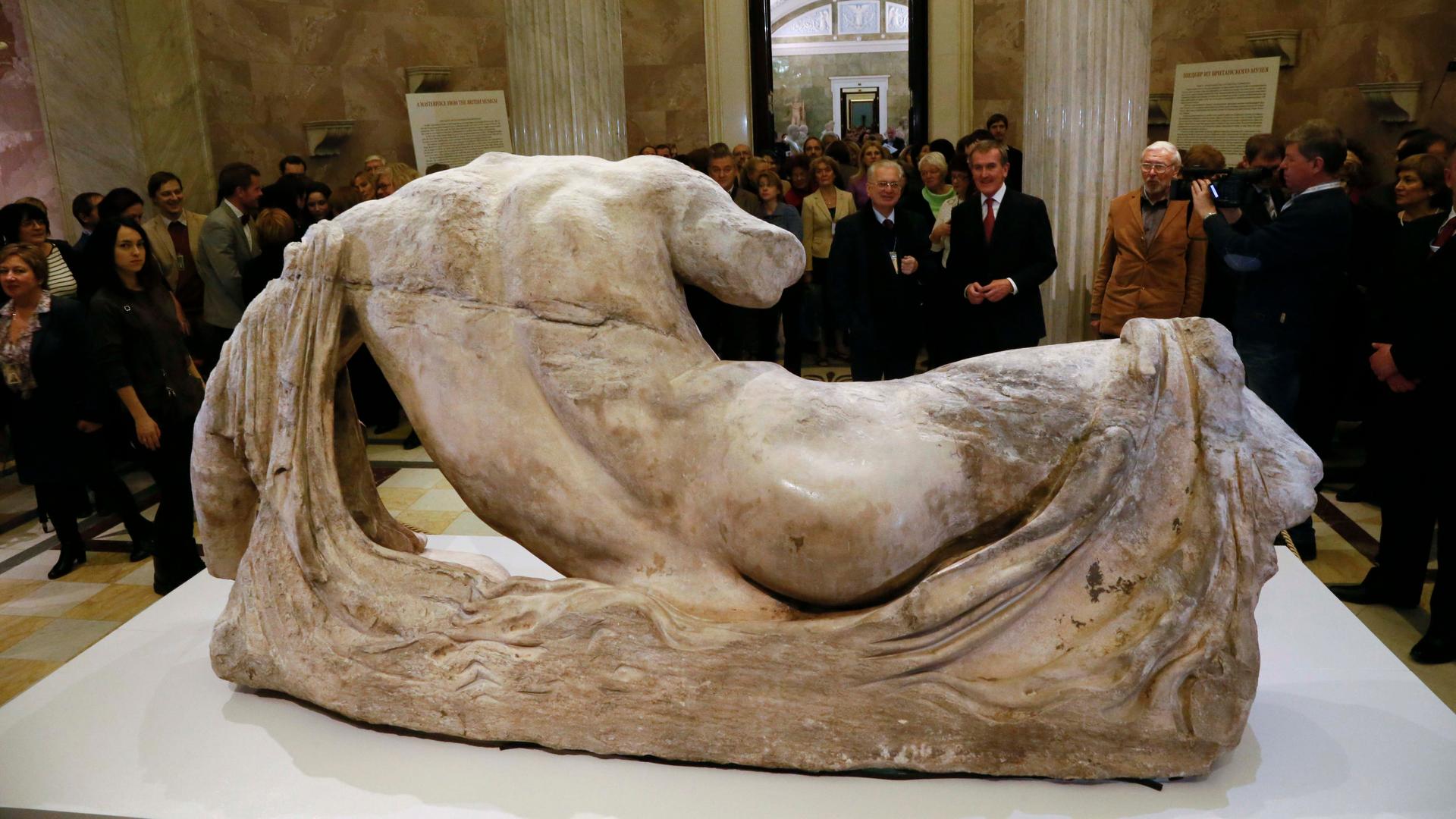Museum curators worldwide are battling over bums on Twitter as part of a British museum’s social media campaign to challenge the public while galleries remain closed due to the coronavirus pandemic.
Since April, the Yorkshire Museum, an archaeology museum in York, England, has hosted 18 weekly “curator battles” under themes such as #CreepiestObject and #BestEgg.
One of their latest challenges is #BestMuseumBum.
Related: Banksy unveils new pandemic-inspired art featuring rats in face masks
“Like museums across the world, we’ve been closed since the middle of March, so we’ve had to be creative in finding ways to engage with the public,” said Lucy Creighton, the museum’s curator of archaeology.
Creighton helped kick off the competition for best behind last month by posting a nearly 2,000-year-old, worn marble Roman statue sporting muscular-looking buttocks.
Museums all over the world, from Canada to Japan, took part in the viral trend by sharing submissions from their own collections. They put forth sumo wrestlers’ bums by Japanese artist Hokusai and an “anti-Hitler” sewing pin cushion at the Freedom Museum in the Netherlands.
The challenge transcended sculpted Greek and Roman rear ends. Tweets also included images of bumblebee bottoms, bunny tails, and other butts from the animal kingdom.
Related: UNESCO says scammers are using its logo to defraud art collectors
As for museums without traditional collections of sculpture and art, “they got really creative,” Creighton said. “We had the bums of ships and other vehicles like trains, and even the tail gunner’s possession of a Halifax bomber.”
After all, everyone and everything has a bottom. It’s universal. That’s why the naked human body has been a popular topic in art and history for a long time, Creighton says.
But bums are also just funny, says Mark Small, who is behind the Twitter and Instagram accounts @museumbums with co-founder Jack Shoulder.
Small and Shoulder, who both work at heritage institutions in Bristol, United Kingdom, started the project over four years ago after they realized that no one was finding galleries full of naked people “funny or silly.”
Since then, Small says the initiative has helped museums such as the Yorkshire reach wider audiences.
“It’s been amazing to see serious and influential museum staff engaging with the collections in a slightly silly way. … It’s about going a step further and sharing information about cultures, histories and people, as well as having a giggle about bottoms.”
“It’s been amazing to see serious and influential museum staff engaging with the collections in a slightly silly way,” Small told The World. “It’s about going a step further and sharing information about cultures, histories and people, as well as having a giggle about bottoms.”
Related: Farmers become social media stars on Chinese TikTok
In some ways, these activities on social media may help diversify and promote inclusivity at these institutions, Creighton said.
“I think museums having fun on social media can perhaps help to break down some of those perceived barriers to access that museums can face,” Creighton said. “We try to be as inclusive as possible at York Museums Trust, and museums are looking to diversify their visitors and to be accessible for everyone. So, doing fun things on social media is a way to promote our collection and get it out there to parts of society that might not normally walk through our doors.”
Still, it may be the end for the battle for best bottom.
On Tuesday the Yorkshire Museum announced the end to its weekly #CuratorBattles series but promised more challenges in the future.
